Eggs are highly perishable, and if not stored properly, they can quickly spoil and lose their nutritional value. Let’s explore some effective ways to store eggs and keep them fresh for longer.
1 Refrigeration
 Refrigerating Eggs
Refrigerating Eggs
This is considered the most popular and convenient method of egg storage. To ensure the eggs remain fresh and last longer in the refrigerator, keep the following tips in mind:
- Wash eggs before storing: Cleaning the eggs helps remove harmful bacteria. Gently wash the eggs and let them air dry, or use a soft, clean cloth to pat them dry before placing them in the fridge.
- Position eggs with the larger end up: Before placing eggs in the carton, ensure the larger end is facing upwards and the smaller end is facing down. This helps prevent the yolk from becoming loose and floating, thus prolonging its freshness.
- Use designated egg trays: Once the eggs are completely dry, arrange them in a carton, food storage container, or specialized egg tray and place them in the refrigerator’s cool compartment.
- Avoid storing eggs in the door: The temperature in this area fluctuates, so it’s best to keep eggs deeper inside the fridge or in a dedicated food storage compartment.
- Don’t keep eggs in the fridge for too long: Eggs should only be refrigerated for 3-5 weeks.
- Refrain from repeatedly taking eggs out of the fridge: Doing so can cause moisture to seep back into the eggs, leading to quicker spoilage and reduced quality.
2 Using Rice Hulls or Sawdust
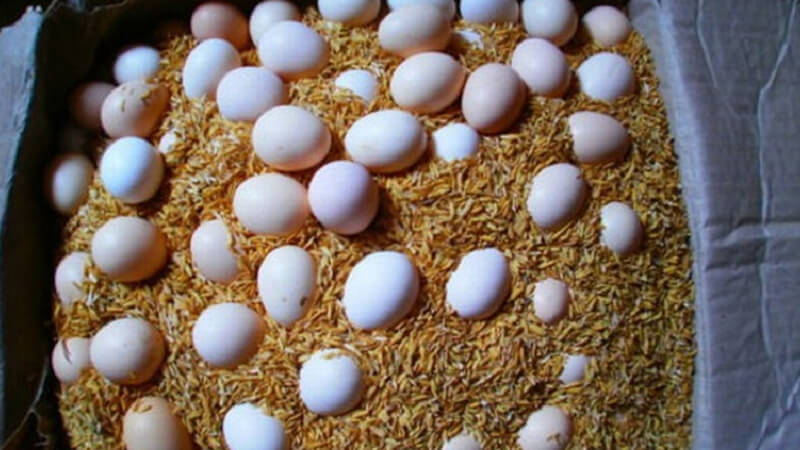 Storing Eggs with Rice Hulls or Sawdust
Storing Eggs with Rice Hulls or Sawdust
Place a layer of dry rice hulls or sawdust in a container, followed by a layer of eggs, ensuring the eggs are completely covered. Keep the container in a cool, shaded area. This method allows you to store eggs for up to a month without refrigeration.
3 Newspaper and Carton Storage
 Storing Eggs with Newspaper and Carton
Storing Eggs with Newspaper and Carton
After purchasing eggs, gently wipe them with a soft paper towel and then wrap each egg in newspaper before placing them in a carton. You can store the carton under the bed or in a cool, shaded area for up to a month without refrigeration.
4 Rice Bran Storage
 Storing Eggs with Rice Bran
Storing Eggs with Rice Bran
Use a wooden box or jar and spread a thick layer of rice bran at the bottom. Then, arrange the eggs in layers, alternating between eggs and rice bran, until the container is full. Cover the top layer with rice bran. Every 10 days, check for any spoiled eggs and discard them. With this method, you can store eggs for 4-6 months.
5 Coating with Cooking Oil
 Storing Eggs with Cooking Oil
Storing Eggs with Cooking Oil
Simply coat the eggshells with a thin layer of cooking oil, such as sesame, coconut, or soybean oil. Store the eggs at a temperature between 25-32°C, and consume them within a month to ensure the best quality.
6 Tea Leaves Storage
 Storing Eggs with Tea Leaves
Storing Eggs with Tea Leaves
Place dried tea leaves in a container, alternating between layers of tea leaves and eggs, ensuring the eggs are completely covered. Keep the container in a cool, shaded area. This method allows you to store eggs for up to a month without refrigeration.
7 Limewater Storage
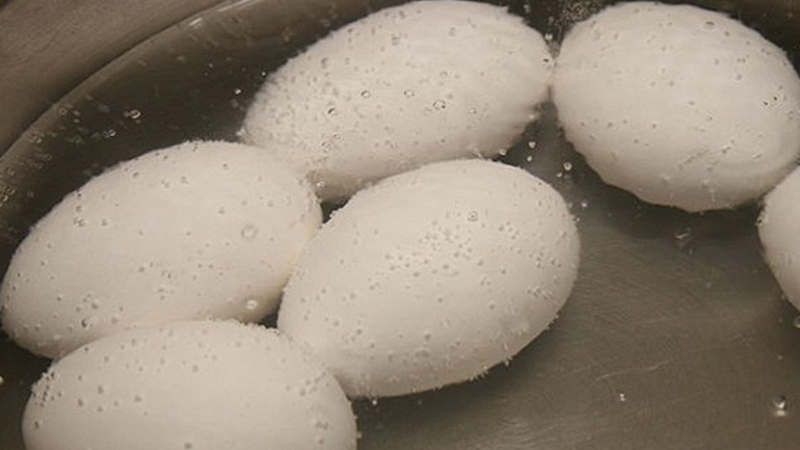 Storing Eggs with Limewater
Storing Eggs with Limewater
Gently wipe the eggs with a soft cloth and arrange them in a jar. Slowly pour in 2-3% limewater until it reaches 20-25 cm above the eggs. This method can preserve eggs for 2-3 months, but ensure the container is stored in a cool, well-ventilated area, away from direct sunlight.
8 Salt Storage
 Storing Eggs with Salt
Storing Eggs with Salt
This method is simple: just bury the eggs in salt. They will retain their freshness for 2-3 weeks.
9 Aluminum Foil Wrapping
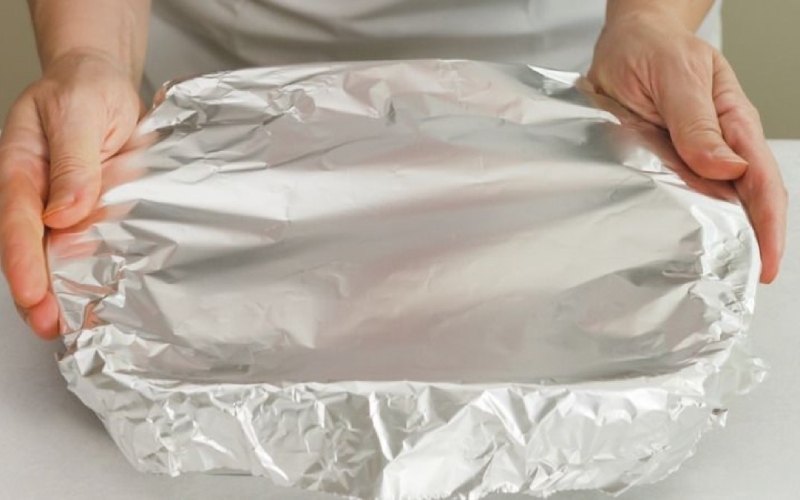 Storing Eggs with Aluminum Foil
Storing Eggs with Aluminum Foil
Wrap each egg in aluminum foil (the type used for grilling) and store them in a cool, shaded area. This will keep the eggs fresh for several weeks.
10 Boiling Water Treatment
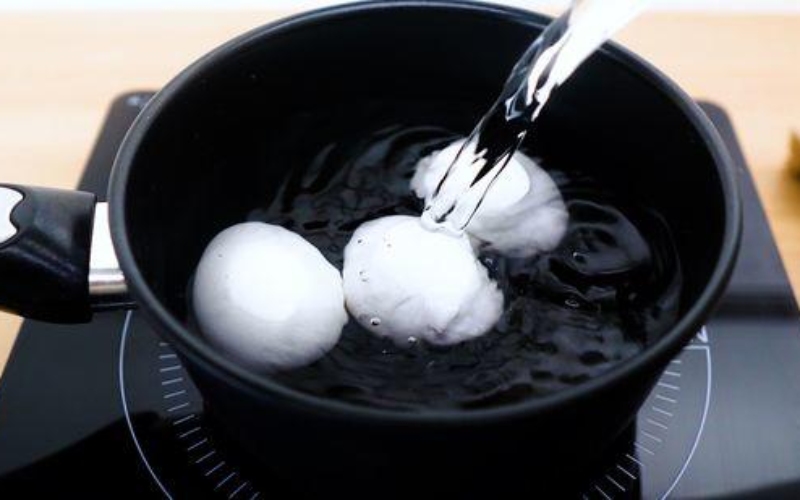 Storing Eggs with Boiling Water
Storing Eggs with Boiling Water
Quickly dip the eggs in boiling water for about 30 seconds. This will create a thin, protective layer of cooked egg white around the shell. Then, place the eggs in fine ash or charcoal and compress them tightly. They will stay fresh for up to two weeks.
11 Storing with Beans
 Storing Eggs with Beans
Storing Eggs with Beans
Similar to the salt storage method, you can bury the eggs in beans to keep them fresh for 2-3 weeks.
12 Additional Storage Tips
Recommended Storage Time
 Recommended Egg Storage Time
Recommended Egg Storage Time
It is recommended to store eggs in the refrigerator for 3-5 weeks. Once removed from the fridge, eggs should be consumed within 2 hours to prevent spoilage.
How to Tell If an Egg Is Bad
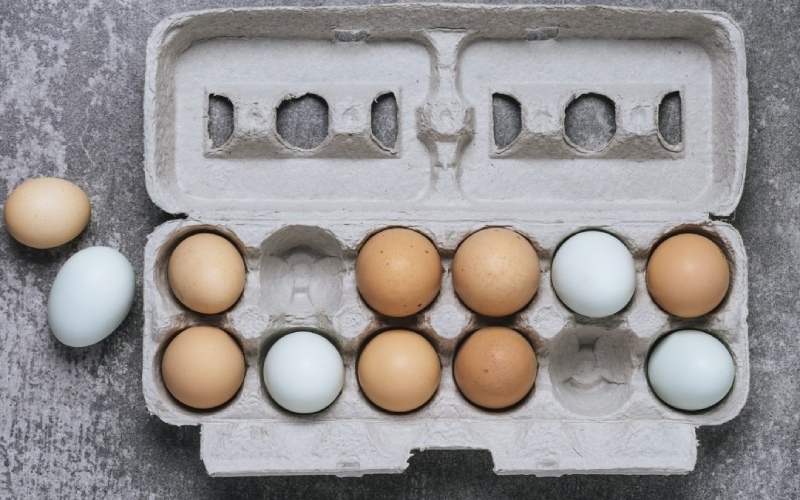 How to Tell If an Egg Is Bad
How to Tell If an Egg Is Bad
Here are some methods to determine if an egg has gone bad:
Water Test: Place the egg in a glass of water. If it sinks to the bottom, it’s fresh; if it floats, it’s spoiled.
Tasting Test: Break the egg and use a toothpick to poke the yolk. If the yolk stands firm, it’s fresh; if it spreads out, it’s spoiled.
Chopstick Test: Break the egg into a bowl and use a pair of chopsticks to lift the yolk. If it’s difficult to lift and the yolk is elastic and intact, it’s fresh. If it’s spoiled, the yolk will be difficult to lift and will easily break.
We hope these tips help you effectively store your eggs. Feel free to share your own egg storage tips with us as well!





































